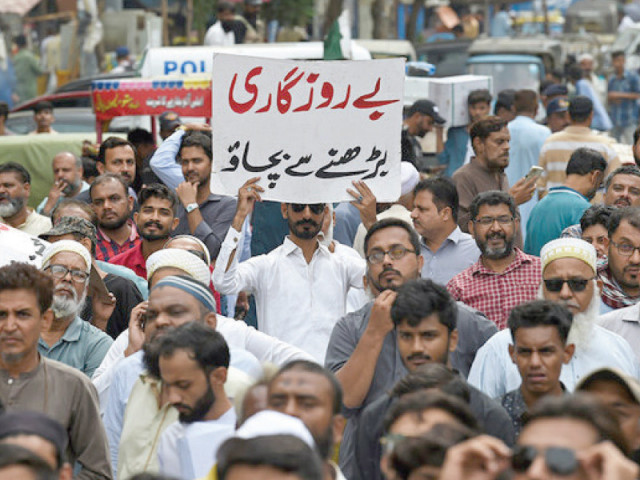Govt policies slammed as ineffective
Business leaders call for urgent fiscal reforms, economic overhaul as crisis deepens

Business leaders have sharply criticised Finance Minister Muhammad Aurangzeb, expressing grave concerns over the government’s ineffective financial policies, which they claim will exacerbate the severe challenges faced by the country’s poor. They are calling for a comprehensive economic management plan to address the current economic crisis.
Despite recent elections and the 2024-25 budget, political and economic stability remain elusive, posing a serious threat to the nation’s economy. They assert that while the government has a duty to tax its citizens, excessive taxation is unjust, especially when the government fails to provide essential services. Citizens must independently fund health, education, security, and basic utilities, such as potable water, while relying on solar power in the summer and LPG cylinders in the winter to address energy shortages.
Instead of reducing and repaying loans, the government continues to seek national and international aid, enjoying luxuries without providing proper relief to the people. The government’s failure to adopt austerity measures within its departments and institutions, while excessively taxing the poor, is seen as an unsustainable financial strategy.
The government must cut spending, they said, adding that a significant trust deficit exists between the government and the public, including the business community, as people see no seriousness in reducing extravagant government expenditures. Bureaucrats and politicians enjoy luxurious lifestyles while continually burdening the poor.
The business leaders have called for the government to urgently review its fiscal strategies and implement effective measures to ensure economic stability. They recommend several key actions: prioritising long-term fiscal planning to minimise reliance on debt, cutting unnecessary expenditures to achieve savings, reforming the tax system to reduce evasion and boost revenue, and fostering private sector involvement to drive economic growth. Additionally, they suggest exploring new markets to enhance exports, improving product quality, and ensuring financial transparency to restore public confidence.
Lasbela Chamber of Commerce and Industry (LCCI) President Ismail Suttar expressed regret over the appointment of Finance Minister Muhammad Aurangzeb. “We, as a private sector, demand that this gentleman (alluding to the finance minister) be replaced in the larger interest of the country without any further delay. Taxing exporters and the salaried class is astonishing; the rulers are causing more pain for the country.”
Suttar lamented the lack of industrialisation and criticised the government’s poor financial policies, which he believes are leading the country towards disaster.
Muhammad Farooq Shaikhani, President of Hyderabad Chamber of Small Traders and Small Industry, also condemned the government’s ineffective financial strategies, recent fiscal policies, and the alarming surge in national debt. He highlighted that in a short period, the government has borrowed a staggering Rs32 trillion from local banks at an exorbitant interest rate of 22%, intensifying the nation’s financial strain. According to the latest data from the State Bank of Pakistan, the government’s borrowing averaged Rs71.8 billion per day during this period, underscoring a dramatic rise in spending. Despite achieving a 30% growth, the government accumulated Rs3.231 trillion in debt over the last 45 days of the fiscal year, highlighting a fundamental failure in fiscal strategy, he said.
Shaikhani stressed that loans from scheduled banks have reached unprecedented levels during the 2024 financial year, posing significant risks to financial stability. In response to these challenges, the 2025 fiscal year budget proposes substantial tax increases to generate 40% more revenue than the previous year.
He also criticised the government for indicating potential tax increases to boost revenue while failing to make serious efforts to control expenditures. Despite the transfer of many ministries to the provinces following the 18th Amendment, these ministries continue to exist at the federal level. The government is spending billions annually on these federal ministries and burdening the public with higher taxes to cover these costs.


















COMMENTS
Comments are moderated and generally will be posted if they are on-topic and not abusive.
For more information, please see our Comments FAQ